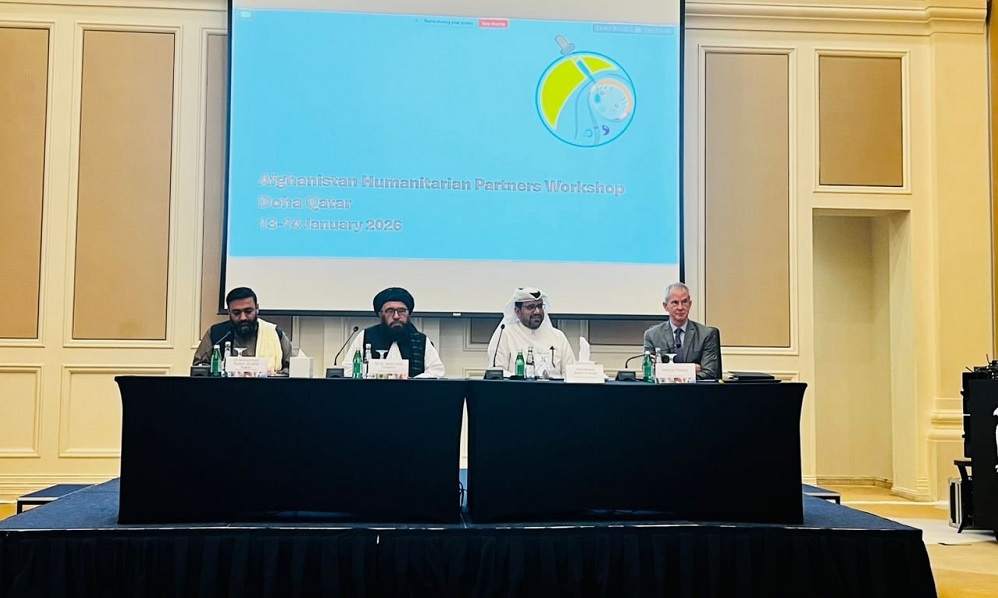Health
Experts warn bird flu virus changing rapidly in largest ever outbreak

The virus causing record cases of avian influenza in birds across the world is changing rapidly, experts have warned, as calls increase for countries to vaccinate their poultry.
While emphasizing that the risk to humans remains low, the experts who spoke to AFP said that the surging number of bird flu cases in mammals was a cause for concern.
Since first emerging in 1996, the H5N1 avian influenza virus had previously been confined to mostly seasonal outbreaks.
But “something happened” in mid-2021 that made the group of viruses much more infectious, according to Richard Webby, the head of a World Health Organization collaborating center studying influenza in animals.
Since then, outbreaks have lasted all year round, spreading to new areas and leading to mass deaths among wild birds and tens of millions of poultry being culled, AFP reported.
Webby, who is a researcher at St Jude Children’s Research Hospital in the US city of Memphis, told AFP it was “absolutely” the largest outbreak of avian influenza the world had seen.
He led research, published this week in the journal Nature Communications, showing how the virus rapidly evolved as it spread from Europe into North America.
The study said the virus increased in virulence, which means it causes more dangerous disease, when it arrived in North America.
The researchers also infected a ferret with one of the new strains of bird flu.
They found an unexpectedly “huge” amount of the virus in its brain, Webby said, indicating it had caused more serious disease than previous strains.
Emphasizing that the risk in humans was still low, he said that “this virus is not being static, it’s changing”.
“That does increase the potential that even just by chance” the virus could “pick up genetic traits that allow it to be more of a human virus,” he said.
In rare cases, humans have contracted the sometimes deadly virus, usually after coming in close contact with infected birds.
The virus has also been detected in a soaring number of mammals, which Webby described as a “really, really troubling sign”.
Last week Chile said that nearly 9,000 sea lions, penguins, otters, porpoises and dolphins have died from bird flu along its north coast since the start of the year, AFP reported.
Most mammals are believed to have contracted the virus by eating an infected bird.
But Webby said that what “scares us the most” are indications from a Spanish mink farm, or among sea lions off South America, that the virus could be transmitting between mammals.
Ian Brown, virology head at the UK’s Animal and Plant Health Agency, said there has not yet been “clear evidence that this virus is easily sustaining in mammals.”
While the virus is changing to become “more efficient and more effective in birds,” it remains “unadapted to humans,” Brown told AFP.
Avian viruses bind to different receptors on the host cell than human viruses, Webby said.
It would take “two or three minor changes in one protein of the viruses” to become more adapted to humans, he said.
“That is what we’re really looking out for.”
Vaccinating poultry
One way to bring down the number of total bird flu cases, and therefore reduce the risk to humans, would be for countries to vaccinate their poultry, Webby said.
A few nations including China, Egypt and Vietnam have already held vaccination campaigns for poultry.
But many other countries have been reluctant due to import restrictions in some areas, and fears vaccinated birds that nonetheless get infected could slip through the net.
In April, the United States started testing several vaccine candidates for potential use on birds.
France recently said it hopes to start vaccinating poultry as early as autumn this year.
Christine Middlemiss, the UK’s chief veterinary officer, said that vaccinating poultry was not “a silver bullet because the virus changes constantly”.
But traditionally reluctant countries should consider vaccinating poultry more often, Middlemiss told AFP at an event at the UK’s embassy in Paris last week.
World Organisation for Animal Health director general Monique Eloit said that the issue of vaccinating poultry should be “on the table”.
After all, “everyone now knows that a pandemic is not just a fantasy — it could be a reality,” she added.
Health
Afghanistan opens first national cancer diagnosis and treatment hospital

The Ministry of Public Health announced on Thursday that Afghanistan has inaugurated its first national hospital dedicated to the diagnosis and treatment of cancer, marking a major step forward in the country’s healthcare services.
The facility, named the National Cancer Diagnostic and Therapeutic Hospital, has officially begun operations and will provide specialized care for cancer patients across the country.
Speaking at the inauguration ceremony, Public Health Minister Noor Jalal Jalali said the 200-bed hospital aims to offer hope and improved treatment options for patients suffering from cancer.
“Fortunately, we are jointly opening a 200-bed hospital for cancer patients, and we hope that this hospital will become a source of hope and healing for those in need,” Jalali said.
The minister added that specialized training programs will soon be launched at the hospital to educate and train domestic medical specialists. He noted that reforms have already been implemented to improve facilities and ensure better healthcare services.
Jalali also emphasized international cooperation in the project, saying that radiotherapy services will be introduced at the hospital with support from India. According to the ministry, India has so far provided $1 million in assistance, including 10 tons of medicines and medical equipment, to support cancer treatment in Afghanistan.
The opening of the hospital is expected to reduce the need for Afghan patients to seek costly cancer treatment abroad and improve access to specialized care inside the country.
Health
Pakistan becomes latest Asian country to introduce checks for deadly Nipah virus

Authorities in Pakistan have ordered enhanced screening of people entering the country for signs of infections of the deadly Nipah virus after India confirmed two cases, adding to the number of Asian countries stepping up controls.
Thailand, Singapore, Hong Kong, Malaysia, Indonesia and Vietnam have also tightened screening at airports, Reuters reported.
The Nipah virus can cause fever and brain inflammation and has a high mortality rate. There is also no vaccine. But transmission from person to person is not easy and typically requires prolonged contact with an infected individual.
“It has become imperative to strengthen preventative and surveillance measures at Pakistan’s borders,” the Border Health Services department said in a statement.
“All travelers shall undergo thermal screening and clinical assessment at the Point of Entry,” which includes seaports, land borders and airports, the department added.
The agency said travellers would need to provide transit history for the preceding 21-day period to check whether they had been through “Nipah-affected or high-risk regions”.
There are no direct flights between Pakistan and India and travel between the two countries is extremely limited, particularly since their worst fighting in decades in May last year.
In Hanoi, the Vietnamese capital’s health department on Wednesday also ordered the screening of incoming passengers at Noi Bai airport, particularly those arriving from India and the eastern state of West Bengal, where the two health workers were confirmed to have the virus in late December.
Passengers will be checked with body temperature scanners to detect suspected cases. “This allows for timely isolation, epidemiological investigation,” the department said in a statement.
That follows measures by authorities in Ho Chi Minh City, Vietnam’s largest city, who said they had tightened health controls at international border crossings.
India’s health ministry said this week that authorities have identified and traced 196 contacts linked to the two cases with none showing symptoms and all testing negative for the virus.
Nipah is a rare viral infection that spreads largely from infected animals, mainly fruit bats, to humans. It can be asymptomatic but it is often very dangerous, with a case fatality rate of 40% to 75%, depending on the local healthcare system’s capacity for detection and management, according to the World Health Organization.
The virus was first identified just over 25 years ago during an outbreak among pig farmers in Malaysia and Singapore, although scientists believe it has circulated in flying foxes, or fruit bats, for thousands of years.
The WHO classifies Nipah as a priority pathogen. India regularly reports sporadic infections, particularly in the southern state of Kerala, regarded as one of the world’s highest-risk regions for Nipah.
As of December 2025, there have been 750 confirmed Nipah infections globally, with 415 deaths, according to the Coalition for Epidemic Preparedness Innovations, which is funding a vaccine trial to help stop Nipah.
Health
Afghan deputy health minister urges increased international support for health sector

Abdul Wali Haqqani, Afghanistan’s Deputy Public Health Minister for Health Services, has called for increased international assistance to strengthen the country’s health sector, stressing the need for sustained and growing financial support.
Speaking at the an international conference in Qatar, Haqqani highlighted critical needs in vaccination programs, primary healthcare, maternal and child health, and preparedness for emergency and epidemic diseases.
He emphasized that aligning international health assistance with Afghanistan’s national health policy would not only improve service quality but also ensure more effective and transparent management of resources.
The deputy minister added that the Ministry of Public Health views such global forums as vital for enhancing cooperation, building trust, and delivering equitable and sustainable healthcare services to the Afghan population.
-

 Sport5 days ago
Sport5 days agoAFC Futsal Asian Cup 2026: Final eight confirmed
-

 Sport3 days ago
Sport3 days agoJapan trumps Afghanistan 6-0 in AFC Futsal Asian Cup quarter-final
-

 Sport5 days ago
Sport5 days agoAfghanistan in new kit for T20 World Cup warm-up against Scotland
-

 Sport3 days ago
Sport3 days agoHosts and heavyweights advance as AFC Futsal Asian Cup reaches semifinals
-

 International Sports4 days ago
International Sports4 days agoPakistan to boycott T20 World Cup group match against India
-

 Sport4 days ago
Sport4 days agoAfghanistan crush Scotland in ICC T20 World Cup warm-up
-

 Latest News2 days ago
Latest News2 days agoTerrorist threat in Afghanistan must be taken seriously, China tells UNSC
-

 Latest News3 days ago
Latest News3 days agoUzbekistan, Pakistan advance Trans-Afghan railway project

























